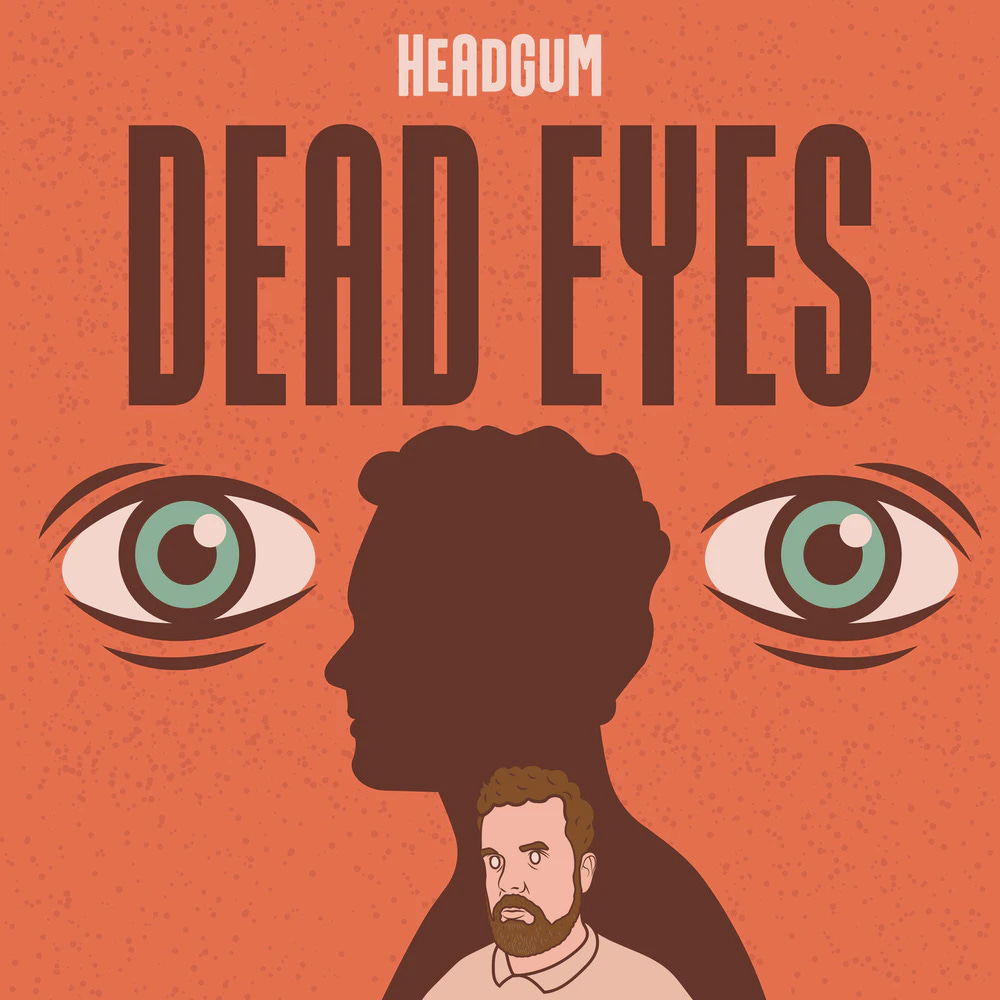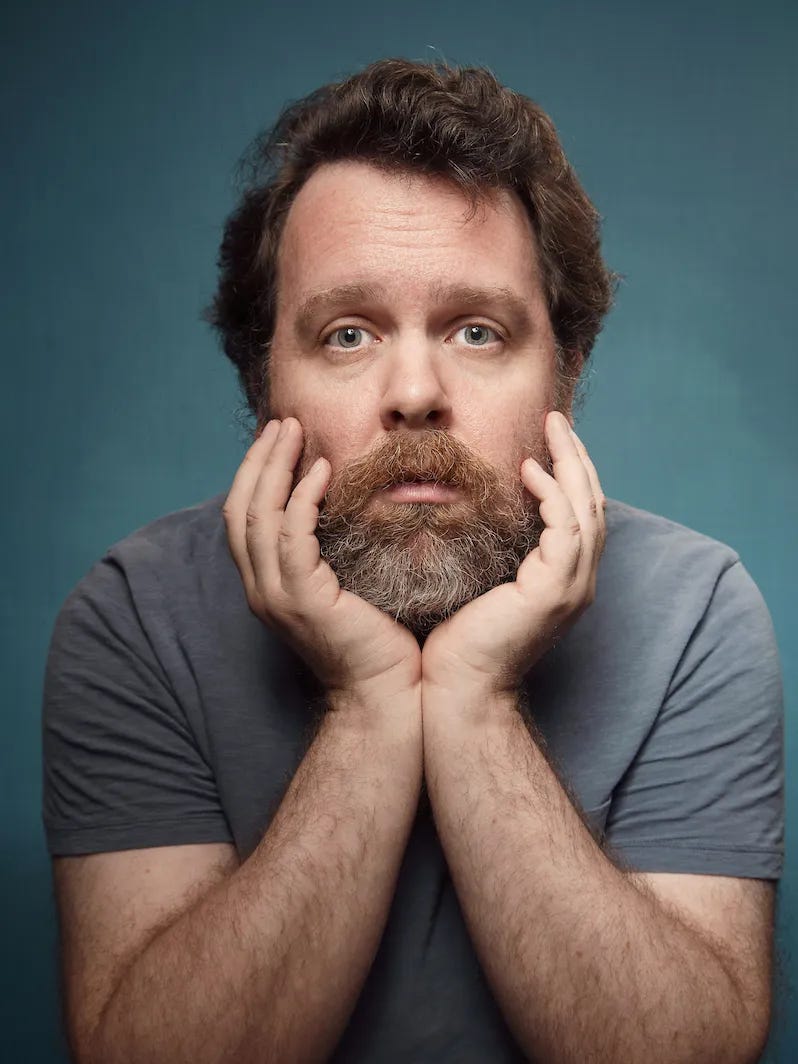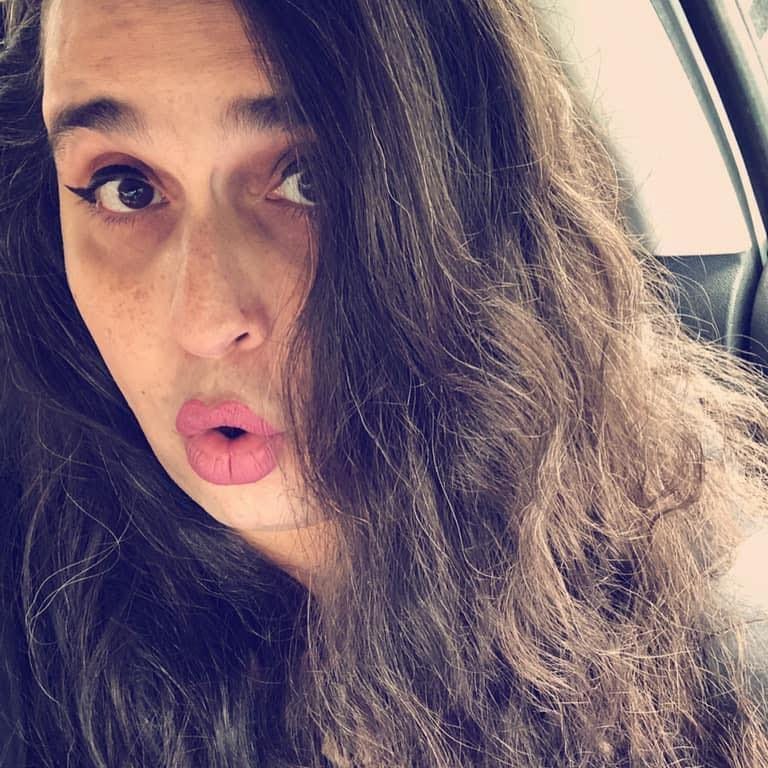DEAD EYES: On Hating the Nicest Guy in the World
Part podcast recommendation, part celebration of life's little cruelties.
In case you haven’t already heard about it from your Twitter trends tab, actor/comedian Connor Ratliff’s Headgum podcast DEAD EYES is one of the oddest, most rewarding rollercoasters I’ve heard in the age of infinite audio. Hosted by the brilliant, gentle-voiced Ratliff — already a parasocial darling thanks to his impossibly committed, years-long, ludicrously well researched impersonation of George Lucas on The George Lucas Talk Show — Dead Eyes starts from a premise that initially delighted me with the potential for an endless, playfully mean-spirited, beating-a-dead-horse-on-purpose shaggy dog joke: an entire ongoing series, with a season structure and all, “about one actor's quest to find out why Tom Hanks fired him from a small role in the 2001 HBO miniseries Band of Brothers.” In a note of perfectly understated comedic tempering, that quote is nonchalantly uttered, verbatim, at the top of every episode — usually (and inexplicably) by TV legend Bebe Neuwirth, who is credited in the show’s official transcripts inexplicably (and correctly) as “Voice of God.”
The reason for that firing? Why, of course: someone told Connor that Tom Hanks said he had “dead eyes.”
The show turns out to be something so much more than that elevator pitch suggests, neither mean-spirited nor beating a dead horse whatsoever. To the contrary, what emerges from the concept, in a seemingly organic fashion, is an earnest, personal, bittersweet, yet consistently funny examination of the emotional highs and lows in the life of an actor or creative — sharing many notes in common with my other favorite among highly polished, radio documentary-style podcasts, Heavyweight, Jonathan Goldstein’s Gimlet show about unpacking everyday folks’ baggage from the past, now exclusive to Spotify. (Fuck Joe Rogan.) Sometimes heartwarming, other times heartbreaking, Ratliff’s Dead Eyes conversations with fellow actors and creators gently part the veil of Hollywood, humanizing the often opaque entertainment industry in a way I’ve rarely encountered.
As one might expect, the first season is the chunk that focuses most heavily on Ratliff’s personal experience with Tom Hanks and unpacking the effects it’s had on him as an actor and a human being. Opening confidently with the sublimely titled “He’s Having Second Thoughts,” the series takes rapid flight with a star-studded cast of conversation partners — which tells its own fascinating story of how even someone with relative success and access, as Ratliff appears to possess, can still be wracked with very human insecurities. He talks with professional handsomeman Jon Hamm; professional normalman who secretly looks like Jon Hamm, Seth Rogen; Knives Out and The Last Jedi director Rian Johnson; iconic singer-songwriter Aimee Mann; SNL survivor Bobby Moynihan; self-described everything-ruiner Adam Conover; and The Good Place scene-stealer I most pine for under the waxing moon, D’Arcy Carden.
Over the course of the show’s three seasons and 31 episodes thus far, there really isn’t a single hard miss, and there are numerous standout episodes that will live on for me in the budding halls of Great Individual Podcast Episodes. Probably my favorite from Season 1 is “Ryan Johnson's Star Wars Prequel Rumors” [sic], which — after relating a hilarious yarn about visionary Rian Johnson’s experiences as an early Star Wars fansite runner — ends on this exchange of profound vulnerability and kindness:
Ratliff: You've seen me, uh, do improv on a comedy stage, a comedy theater.
Johnson: I have.
Ratliff: Did you get a good look at my eyes?
Johnson: Oh yeah. Yeah. I looked straight into your eyes. You know what I saw in those eyes, Connor? Life.
As the series develops and mutates, we start to look at other ways in which people’s lives have intersected with that of Tom Hanks, or racked up baggage like Ratliff’s: maybe they played a stage role Hanks has also played, or they too auditioned for Hanks or Band of Brothers, or they have a crushing firing story of their own, and so on. This is where the series starts to hit its true stride, zooming out from Ratliff’s trauma to take a wider look at the disempowering, rejection-heavy, often painful nature of auditioning — not to mention the very concept of exposing your emotions as a profession. The cleverest premise among such episodes, and a gem of Season 2, is “Young Tom Hankses,” wherein Ratliff talks with several actors who have played the younger or flashback version of a Tom Hanks character — including Elijah Wood, who played the 11-year-old leading role of Mike in Radio Flyer, with Hanks filling the (apparently uncredited??) role of “Older Mike / Narrator.”
Now, if all of that sounds interesting — and you’ve managed not to hear about the show in recent weeks — this is where I suggest you bookmark this, stop reading, and just go listen to Dead Eyes from the top. Not only is it well worth your time anyway, but the recently concluded third season takes such incredible twists and turns that I just have to gush about it, spoilers included. Don’t worry; I’ll still be here in 31 hours.
Also, just to be thorough…whenever you open up the show in your podcast app, try not to see the titles of the latest five episodes as of this writing, numbered 27-31. (In my preferred iOS podcast app, Overcast, you can set the sort to “Oldest to Newest” after uh, covering most of the screen with your hand for a second I guess.)
EXTREME SPOILERS FOLLOW:
Are you still with me?
You sure?
You’re definitely ready?
Okay.
Well.
Here we go:
The boy did it. He fucking got there. In characteristically restrained form, the third season finale is simply titled: “Tom.” And the official in-app episode description, in its entirety?
“Connor talks with Tom Hanks.”
To be fair, if this hadn’t already seemed basically inevitable since somewhere in the middle of Season 2, it certainly did after episode 27, a lovely Season 3 sitdown with uh, Tom’s actual human son, actor/director/producer Colin Hanks — who had me scream-laughing at this unforgettably tossed-off comment:
The story is, is that he's the nicest guy in Hollywood. He's America's dad, which don't get me started on that. That's a whole ‘nother — that’s a whole ‘nother episode.
Yet after 30 episodes of buildup, hope, and anticipation, I’m beyond pleased to say that the payoff could not have been a single box of chocolates sweeter. In a spacious, comfortable 90 minutes — which I’m not certain is the show’s longest episode, but wouldn’t it be kind of bonkers if it wasn’t? — Ratliff and the ever lovable Ben Schwartz (Parks & Rec, BoJack Horseman, my celebrity-friendship fantasies) briefly open up about how the meeting finally fell into place, and then…Connor talks with Tom Hanks.
The conversation is, sincerely, everything I could have wanted and more. Yes, Hanks comes off every bit as kind and warm and personable as we all like to imagine he really is. Yes, they talk — extensively — about Ratliff’s confused, chain-yanking, two-steps-backward Band of Brothers audition process, in which he was cast and then told he had to re-audition and then un-cast, and just how the communication ball got fumbled so hard. Yes, Tom Hanks apologizes for the hurt it’s caused.
And yes, they talk about whether Tom Hanks actually said that Connor had dead eyes — and Hanks kindly, humbly, generously takes it for granted that he did, even though he says (and I believe him) that he doesn’t remember saying it:
But let's imagine I actually watched the tape and said to somebody, I don't know, “Man, this guy's got dead eyes.” Let’s — I'm going to say, I said that, obviously, I said that. “Dead eyes.”
Now, if I have one gripe about Tom Hanks as such an iconic actor and pop culture figure, it’s that as his career has gone long, I feel he’s leaned a little harder into his perennial, universally accepted Nicest Guy In The World image than I’d like. Since around Road to Perdition — with the partial exception of one or two of his like, I dunno, six? different roles in the Wachowski Sisters’ mind-bendingly crafted, mind-bendingly racist Cloud Atlas — he really hasn’t taken any parts that show off a significant dark side. I’ve long considered this a squandering of his rich talent and emotional range — and to be blunt, I’m just frankly not interested in all the Great American Man narratives he seems drawn to in the last two decades, as in Charlie Wilson’s War, Captain Phillips, or Sully. I’ve literally written him into one of my own screenplays as a heartless, monstrous, irredeemable supervillain, almost solely because I’d like the world to see him pull that off once before it’s too late.
So a personal high of the episode for me is the most unexpected comment he makes at the culmination of their discussion of just how the fuck it happened. Bear with me for a moment; I swear I’ll come back around to this.
In a fashion I’d almost have imagined impossible, Hanks really makes the whole thing sound so mundane and normal that it almost seems to no longer need explaining. He talks about how every actor has had an experience like Connor’s; how he himself has met both triumph and crushing disappointment on both sides of the audition table; and, most saliently, about what he repeatedly calls the “inner sanctum”: the sensitive space where a director and other close, high-level collaborators such as editors and producers look at the dailies — filmmaker jargon for the raw, unedited footage shot each day, also called “rushes” — and, in his telling, where they need to be able to speak freely, as unfiltered as possible, about what they’re seeing and how they feel about it.
Hanks relates this to Ratliff and the listener with startlingly relaxed candor and matter-of-factness, primarily through an anecdote placing himself on the other side: he tells of an instance earlier in his career in which, starting to feel like a real star with some pull, he went in expecting to see the dailies from a picture he was appearing in, on the assumption that he was now entitled to do so. To his surprise, he was told politely, but in no uncertain terms, to get the hell out — for his own protection:
And she said, “No, no, you don't. You don't get to see dailies because in this room, we have to talk uncensored, we are going to say terrible things about you and the lighting and the props and the dolly moves and you.” […] “I hate this take. I'm not using it. His hair looks stupid. Why does he have those folds in his neck? Why is his voice so squeaky? We have to say all these things. And if you're here to hear them, it's really going to screw you up.”
With this pitch-perfectly self-effacing anecdote, adopting a position of humility and naïveté, Hanks reveals both a blunt truth about the nature of creative communication, and — for the sake of Connor and every actor — a compelling narrative about how these harsh critiques by creative decision-makers don’t have to mean anything in the big picture, because they’re just a necessary evil of de-frustrating the creative process.
That is: no performer is safe from it, even Tom Hanks.
That brings me back around to my favorite moment in the episode and possibly the entire podcast so far, where the Nicest Guy In The World tips his hand a little and displays a pleasantly surprising, delightfully acerbic sense of humor. Tom Hanks says the thing I am most excited to ever have heard Tom Hanks say:
So with that, whoever communicated to you what was said in the inner sanctum with such authenticity should have their kneecaps broken because that is not allowed.
Perhaps the original mission of Dead Eyes really was simply to help Connor Ratliff, a thoughtful, sensitive individual, deal with a personal and professional trauma — a small injustice that had an outsize, lasting impact on his self-image and self-esteem. Alternatively, maybe the mission of Dead Eyes has always been for Connor Ratliff, a talented actor and uncannily dedicated comedian, to build a robust podcast franchise exploring the interpersonal complexities of The Biz in all its blemished glory — giving his fellow performers a platform for their own tales of artistic heartache and triumph.
Whatever Ratliff’s intentions were and however they’ve evolved, Dead Eyes has found its way to what feels like an ideal revelation in service of his catharsis and healing — and all of ours, during this miserable age: that yes, even Tom Hanks is human.
I certainly know that what I’ve learned from the Season 3 finale will bring me comfort for many years to come.
Is the lesson here — the takeaway for everyone struggling toward their own dreams, facing their own little cruelties and small (or great) injustices — that even Tom Hanks met with his share of stumbles, rejection, and criticism on his way up to the top?
No.
Our humanness is not defined by those extrinsic factors that serve to oppress each of us in (wildly) different measures. Even though Tom Hanks is not exactly a portrait of marginalization, deep down, if we really, truthfully ask ourselves, we all already know that, sure, even the most privileged among us do in fact face their own setbacks and humiliations along the unpredictable roads of living.
No — our humanness is defined by how we respond to those inevitabilities.
On one level, to “be human” is to be kind, caring, and vulnerable with each other; on another, to be “only human” is to be petty, vindictive, and needlessly cruel, irrationally overtaken by impulse — especially when we feel slighted. So in a fascinating way, Dead Eyes has become a story about the intersection of the two: how even what seems on the surface like a quest for revenge or vindication can turn into a special opportunity for learning, community-building, and personal growth.
Anyway, what I’m trying to say is this: I just think it’s nice to know that even the nicest guy in the world wants to break somebody’s kneecaps once in a while.
SINISTRA BLACK is an LA-based writer-director and Transgender Anarchist killjoy.
She can be found on Twitter, Facebook Pages, and other platforms, sharing humor, criticism, scorching takes, and inscrutable levels of post-ironic Bitch Energy.
She is available for hire or personal advice, but you get what you pay for fucker,
For more pop culture deep dives, check out Jessica Jones Season 1 Is Way More Racist Than You Remember. If you like indecipherable 80s dream pop, try this series on the Cocteau Twins discography. If neither, fuck off I guess? idk we’ll see
All content © 2022 Sinistra Black, All Rights Reserved.
Images referenced under Fair Use.






